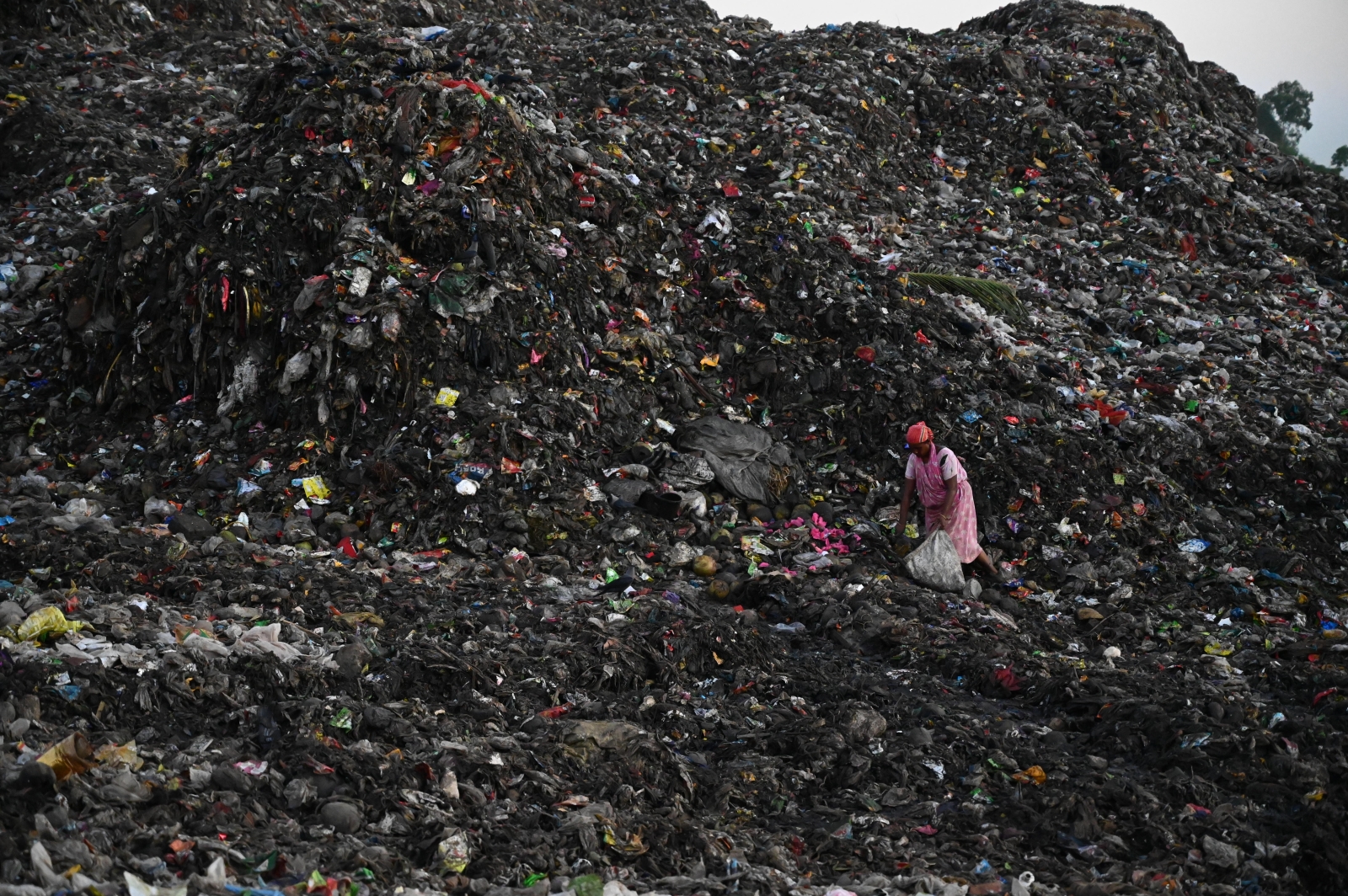Waste management in Europe, especially when an EPR scheme is involved, is anything but a homogeneous affair. Under the umbrella of EU legislation, over the years member states have found flexible, different, territory-specific solutions. However, the lack of a “one size fits all” model has not guaranteed, everywhere and in the same way, the expected recycling performance.
What can be done to close the gap? More importantly, what is the future for EPR schemes, even outside the EU, now that a global plastics treaty is being negotiated? Renewable Matter spoke with one of Europe’s leading experts about this: Joachim Quoden, a lawyer specializing in international EPR legislation and managing director of the Extended Producer Responsibility Alliance (EXPRA), a nonprofit, packaging industry-owned alliance consisting of 32 PRO organizations from 30 countries around the world.
In a report released on June 8th, 2023, the European Commission showed how 18 member states are at risk of missing recycling targets for 2025. Was this to be expected?
These results were expected. And, of course, it is a great pity. Especially because the gap between the leaders and the bottom performers is extremely large. We are not talking about small percentages, but entirely different universes. This tells us that we need to devote much more time to those countries that are lagging behind. We have to work with them and offer them help, but also, of course, be extremely honest if we think we have identified something they are not doing in the best way. There is still a tendency in many countries to experiment when occasionally it would be easier to try to copy the front-runners.
Where, for example?
Hungary and Croatia are the only ones that do not implement extended producer responsibility, having adopted a government-run taxation system for the past decade. The taxes that the industry pays are quite high, and yet, about 80 percent of the money collected does not go to waste collection, sorting, and recycling. It's a tax, so it goes into the general budget. And everything is extremely centralized.
Speaking of centralization, what has been happening in Hungary in recent months?
Hungary is seriously behind on targets. So perhaps the government should be brave enough to trust the industry and give it a chance to solve the problem, at least as far as packaging is concerned. A trust that had also come a decade ago and allowed the country not to have such poor results.
Now in Hungary, the government has decided to take a new step. A few months ago, it launched a very short-time tender to identify a concessionaire: an entity responsible for the entire management of municipal waste, including all the flows covered by the EPR schemes and the deposit system they would like to set up. A big responsibility because this concessionaire will run the system for 35 years. Interestingly, however, only one company has applied: the Hungarian Oil and Gas Public Limited Company (MOL, author’s note). Nothing against oil companies. I think they are definitely experts in finding, producing and selling oil. It is the waste management that surprised me.
Is there a lowest common denominator in the best-performing countries?
In frontline countries, it can be seen that EPR schemes are in the driver's seat, having an influence on the system. This means that they are capable of working directly with disposal companies, recyclers, and industry, ultimately re-introducing packaging to the market, as in Belgium, Germany, and the Netherlands.
If you compare it with the Romanian approach, for example, you see that the obligated industries simply pay for a piece of paper, certificates that only certain companies are allowed to issue. At that point, you have to trust on paper that it is true that there are recycling activities going on. In this way, EPR systems do not have the opportunity to work with different actors to improve the system, and the logical consequence is that the performance of the system is quite low.
What can national governments do about it?
Fortunately, in Article 8 of the Waste Framework Directive, there are so-called minimum requirements for EPRs. This can be a starting point for a government to design the system. Usually, the next question would be: how much do I involve local authorities? If local authorities in a country are already very active in waste collection and management, I think it is very good to give them the right to do the collection.
Following that, under certain conditions, the obligated industry has to foot the bill. But as far as sorting and recycling are concerned, I think it should be the EPR system that should be allowed to organize and tender. This is what a national government should put in the legislation. The EPR system is somehow the brain, we have to lead and not be the arms and legs of the system.
So, the EPR scheme will be in the center?
If we imagine waste management as the wheel of a bicycle, then the best place for the EPR system is in the center of the wheel. We have a responsibility to keep it turning and to make it as round as possible. And that happens if every stakeholder is in a position to do their best work. We should have experts in the system, and we should work with municipalities, with collectors, with recyclers, with residents, with businesses.
What is the role of law enforcement?
Unfortunately, it's not just about making a law, it also means enforcing it to see if companies and Producer Responsibility Organizations are meeting their obligations. It is like introducing a speed limit on the highway, you also have to monitor it, otherwise no one will follow it. This is what a government can do and what many governments are doing. Where government is involved, there are positive effects on performance as well.
EU countries have built different packaging waste management models, each with its own specificities and each effectively fulfilling its mandate. Is a “one-size-fits-all” EPR model to be averted?
In Brussels, we sometimes have the idea of writing a business plan that then all member states have to follow. However, if you look at the reality of the countries, you see that they are too different to introduce a single solution. In Italy, you cannot collect packaging in the same way in Venice as in Sicily, just as you cannot collect in northern Finland as in Malta because the population density is entirely different.
The involvement of municipalities also changes from country to country. In Germany, the decision was made to give industry full operational responsibility, so municipalities have virtually no role in the system. In France, on the other hand, municipalities take care of everything from collection to sorting to recycling. What would be the solution? I think the French authorities would never agree to follow the German way. I think the approach from Brussels is too granular. We can agree on the targets and the framework centrally, but we cannot tell the member states exactly what they have to do.
Let's talk about packaging, where is there room for improvement?
For most countries, especially for plastics, it will be a challenge to meet the targets for 2025 and 2030. Especially given that the 55 percent recycling target is calculated at a new measuring point, inside the recycling plant in front of the extruder.
Today, wanting to approximate some calculations, for all packaging, at the separate collection stage, 80% is already a good result. Of this 80% collected, at the sorting stage we will recover 80%, which again is a very good performance. Compared to the total input into the market, we are therefore already at 64%.
However, in the recycling plant, the treatments involve some losses: with an 80% yield, of the plant, which is an equally good percentage, we finally arrive at a recycling rate of 52-53%. So, the state-of-the-art tells us that we will get close to the 2030 target, but without reaching it. We need to improve at all stages and especially in collection.
What can be done?
First, of course, a convenient collection system is needed. In addition, pioneering countries are currently focusing on the so-called out-of-home collection, considering that about 10 percent of household packaging is consumed in places such as gyms, stations, offices, and airports. So, there is great potential, even if it is expensive. But I think we have no choice but to offer our citizens a solution. Furthermore, we really need to increase our efforts in communication to convince people to separate even when they are outside their homes.
The Global Plastic Treaty is being negotiated. Does it have hope?
I'm still an optimistic person. I know that at the beginning of the second round of negotiations there were plenty of efforts to overcome the concerns of some countries who were afraid of losing one of their main revenues. In the end, I think the highest possible result was achieved, the Secretariat having been given a mandate to draft a first version of the future treaty. I think this is more than could have been expected after the first two days of negotiations.
One of the issues being negotiated is precisely the obligation to introduce EPR schemes. Is the EPR model already expanding? EXPRA itself has new members in Chile, New Zealand and Canada.
Mandatory industries, i.e., those who would have to pay into an EPR system, are also promoting the inclusion of this idea in the Treaty. It is probably the only tool that can provide sustainable funding and help countries improve their waste management system. We are already working on this, together with CEFLEX and the Consumer Good Forum. The United States would also like to introduce voluntary targets, which is unfortunate.
But a lot is happening in the United States right now. There are now at least five states with an EPR system. And even there, the mandatory manufacturing industries are no longer trying to block it. Remarkably, now the industry sector that is most afraid is the waste management sector.
The greatest challenge in the rest of the world?
In many countries, of course, waste management has so far been left mainly to the informal sector. So, we have to find solutions and offers to integrate this sector into the systems of the future. You cannot act against it, as it would create social problems because that is how they earn their living. We have to find ways to include them, to value them, we cannot tolerate them doing their work in unacceptable conditions. And in Chile, for example, this obligation to cooperate is even in the legislation.
Download and read issue #46 of Renewable Matter.
Cover image: Mumtahina Tanni, Pexels



